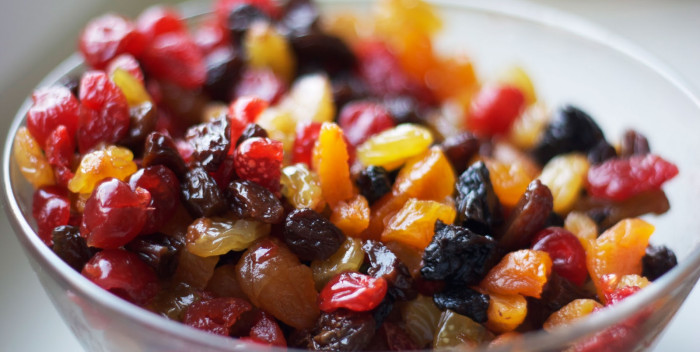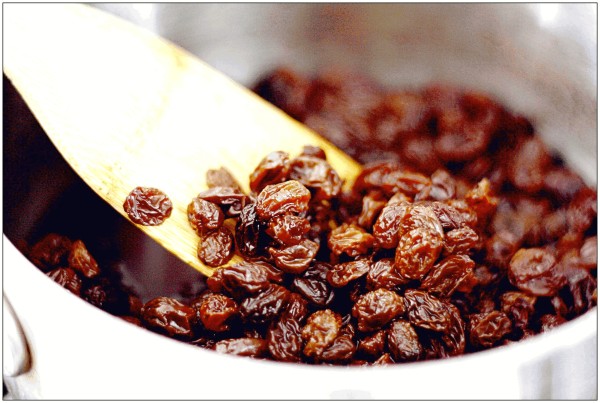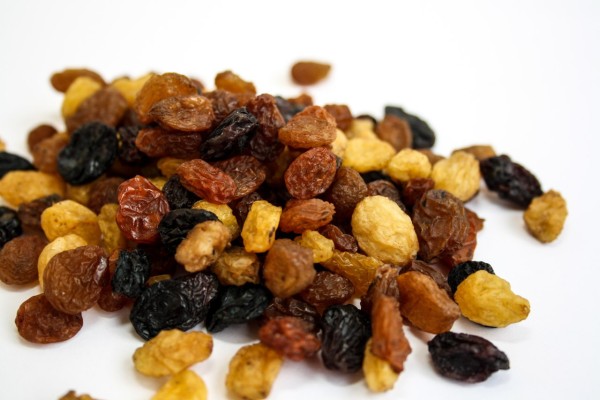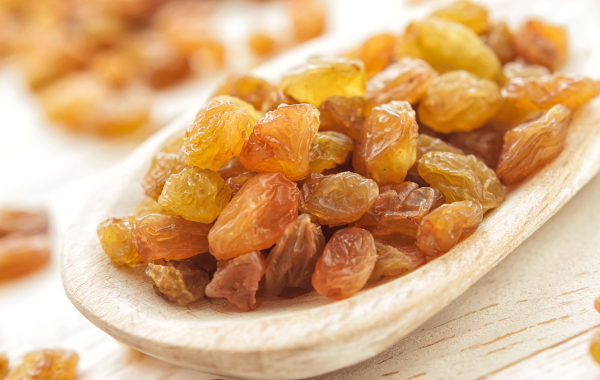Raisins: benefits, harm, calories
Raisins, which are dried grape berries, are known to everyone. It was brought to our country from the states of the Middle East, where it is still widely used in cooking. He is also very popular in Russia.
The benefits of raisins
Dried grapes are mentioned in ancient treatises. There it is indicated as a medicine and is part of some medicinal drugs. What benefits does this dried fruit actually bring?
Raisins have a high percentage of B vitamins and niacin. This means that the product has a beneficial effect on the functioning of the nervous system. Calms her down and helps her sleep.
Dried berries contain calcium and boron. These substances are excellent as a prophylactic agent against osteochondrosis and osteoporosis.
Raisins have diuretic properties. This means that it can help with swelling, kidney and digestion problems. Since it contains iron, it helps in treating anemia.
The high fat content of raisins, in this regard, its use is especially recommended for people receiving significant physical activity, for example, athletes when gaining muscle mass.
Potassium, which is found in large quantities in raisins, helps to establish the activity of the heart muscle. Therefore, the use of this dried fruit is beneficial for heart ailments.
Raisins are also useful for enhancing the body's immune defenses. It is advised to use it to relieve the symptoms of colds, bronchitis and cough, headaches, as well as to speed up recovery from serious illnesses. It does not destroy tooth tissue and is beneficial to the gums.
Raisins harm
Everyone probably already knows that grapes are a very high-calorie product in themselves. It should not be consumed by those who seek build... And in dried berries, the amount of glucose is several times greater. In this regard, excessive eating raisins can lead to the appearance of excess weights... For the same reason, raisins are not recommended for people with diabetes.
In addition, this dried fruit goes on sale in a not entirely pure form. Therefore, to avoid digestive problems, we recommend that you rinse it thoroughly or soak it in lukewarm water.
Other diseases for which raisins cannot be used are stomach ulcers, acute heart failure, enterocolitis, tuberculosis, especially in open form. You should limit the use of raisins as much as possible for stomatitis or pulpitis until complete recovery.
Calorie content of raisins
The energy and nutritional value of raisins differs to some extent from variety. Now there are 4 main varieties of raisins on sale.
- Raisins of a white shade and small size are distinguished by the absence of seeds inside. It is obtained from grapes light varieties. This variety of dried fruit is called sabza or raisins. Compared to other varieties of raisins, sabza has the highest calorie content. For every 100 g of raisins of this variety, there are 300 kcal.
- Cinnamon raisins are dark in color and small in size. This variety is also called shigana or bidana. This variety of raisins is produced from black grapes. According to nutritionists, this variety is the most recommended for the human body. Cinnamon is dry and not very sweet or soft and has a pronounced sweetness. Dry and unsweetened cinnamon has fewer calories: 260 kcal for every 100 g. The sweet variety of cinnamon has a higher calorie content - 285 units per 100 g of dried fruit.
- The grapes of the Damskie Fingers or Khusain variety are used as raw materials for the manufacture of raisins of the germina variety. It turns out to be large and very tasty. The calorie content of raisins of the germina variety is about 265 kcal per 100 g of berries.
- Dark green raisins with a single bone inside do not have a special name. Its zest is of medium size. The calorie content of this dried fruit is 260 kcal per 100 g.
As you can see, all varieties of raisins are quite high in calories. Therefore, it is very important not to overuse this product, especially for those who suffer from diabetes and strive to become slimmer.





